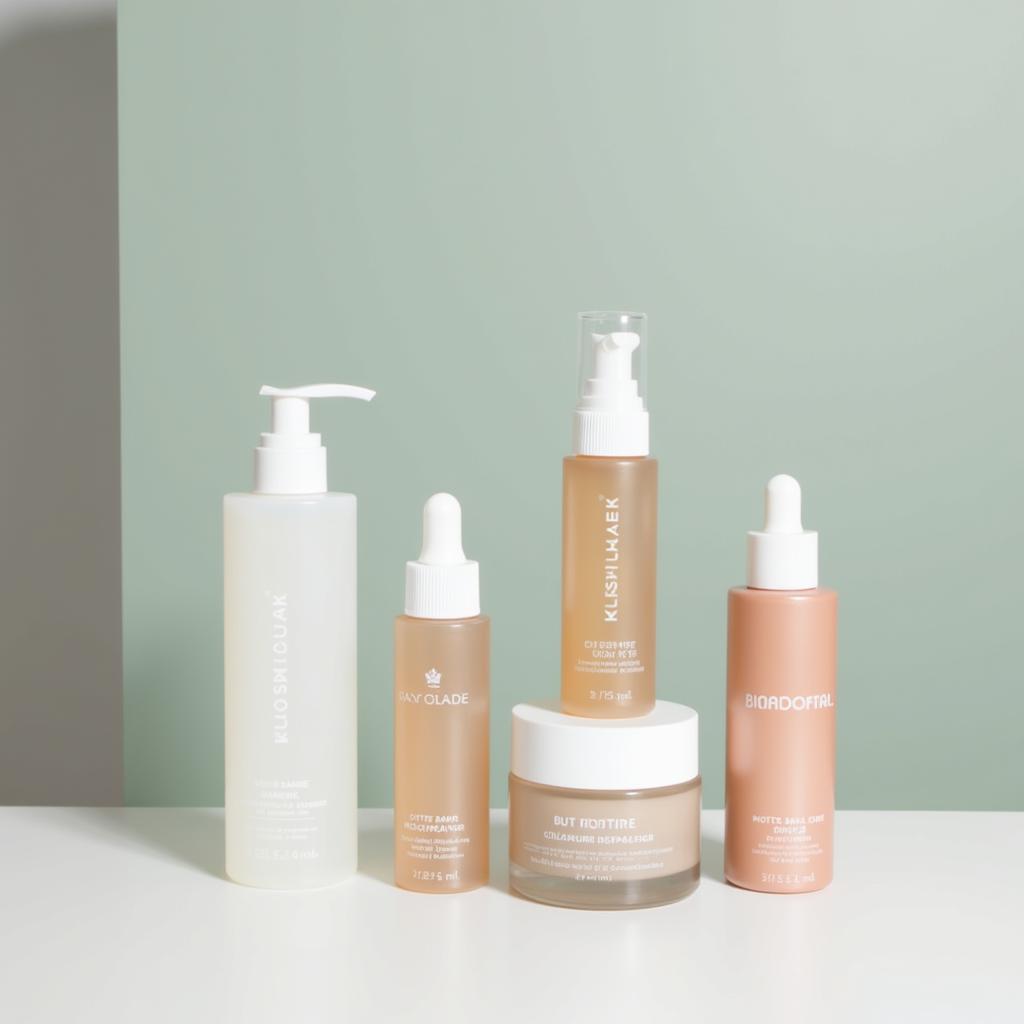The Women’s Derm Society is dedicated to providing women with reliable and up-to-date information on all aspects of skin health. We understand that women’s skin is unique and requires specialized care at every stage of life. Whether you’re seeking solutions for acne, aging, or specific skin conditions, our goal is to empower you with the knowledge and resources to make informed decisions about your skincare.
The Importance of Skin Health for Women
Our skin is the largest organ in our body, acting as a protective barrier against external aggressors like pollution, UV radiation, and bacteria. For women, hormonal fluctuations throughout life, including puberty, pregnancy, and menopause, can significantly impact skin health, leading to changes in sensitivity, oil production, and collagen levels. Understanding these changes is crucial for developing an effective skincare routine.
 Women's Skin Health Across Lifestages
Women's Skin Health Across Lifestages
Common Skin Concerns and Solutions
From acne to eczema, women face a wide range of skin concerns. Here’s a closer look at some of the most common issues and their solutions:
1. Acne: Hormonal fluctuations often trigger breakouts, making acne a common concern for women of all ages.
- Solutions: Gentle cleansing, topical retinoids, and in some cases, oral medications prescribed by a dermatologist.
2. Dry Skin: As women age, their skin produces less oil, leading to dryness and irritation.
- Solutions: Hydrating cleansers, rich moisturizers containing hyaluronic acid or ceramides, and regular exfoliation to remove dead skin cells.
3. Hyperpigmentation: Sun exposure, hormonal changes, and inflammation can cause dark spots and uneven skin tone.
- Solutions: Sun protection with broad-spectrum SPF, topical ingredients like vitamin C, niacinamide, and kojic acid, and professional treatments like chemical peels and laser therapy.
4. Aging: Collagen and elastin production decrease over time, resulting in wrinkles, fine lines, and loss of elasticity.
- Solutions: Retinoids, peptides, antioxidants like vitamin C and E, hyaluronic acid for hydration, and procedures like Botox, fillers, and laser resurfacing.
Building an Effective Skincare Routine
An effective skincare routine is crucial for maintaining healthy and radiant skin. Here’s a basic framework to get you started:
- Cleansing: Wash your face twice daily with a gentle cleanser suited for your skin type.
- Toning: Apply a toner to balance your skin’s pH and prepare it for other products.
- Treatment: Target specific concerns with serums containing active ingredients like vitamin C, retinol, or hyaluronic acid.
- Moisturizing: Hydrate your skin with a moisturizer tailored to your skin type.
- Sun Protection: Apply a broad-spectrum sunscreen with an SPF of 30 or higher every day, even on cloudy days.
 Essential Skincare Products for Women
Essential Skincare Products for Women
The Role of a Dermatologist
While many resources are available online, consulting a board-certified dermatologist is crucial for addressing specific skin concerns. A dermatologist can diagnose conditions, recommend appropriate treatments, and provide personalized advice for maintaining healthy skin.
Empowering Women Through Knowledge
The Women’s Derm Society is committed to empowering women with the knowledge and resources they need to make informed decisions about their skin health. We believe that every woman deserves to feel confident and beautiful in her own skin.
FAQs about Women’s Skin Health
1. What are the best skincare ingredients for aging skin?
Retinoids, peptides, antioxidants (vitamin C, vitamin E), and hyaluronic acid are all excellent ingredients for addressing signs of aging.
2. How often should I exfoliate my skin?
Most skin types benefit from exfoliation 1-2 times per week. However, if you have sensitive skin, it’s best to start with once a week and increase the frequency gradually.
3. Can I use the same skincare products during pregnancy?
It’s essential to consult with your doctor before using any skincare products during pregnancy, as some ingredients may not be safe.
4. How can I prevent hyperpigmentation?
Daily sun protection with a broad-spectrum SPF 30 or higher is crucial for preventing hyperpigmentation.
5. When should I see a dermatologist about my skin?
If you have any concerns about your skin, including persistent acne, unusual moles, or any changes in your skin’s appearance, it’s best to consult a dermatologist for a professional evaluation.
Need Help?
For support and guidance on your skincare journey, contact the Society For Peace:
Phone: 02043854663
Email: [email protected]
Address: Khu 34, Bac Giang, 260000, Vietnam.
Our dedicated team is available 24/7 to assist you.